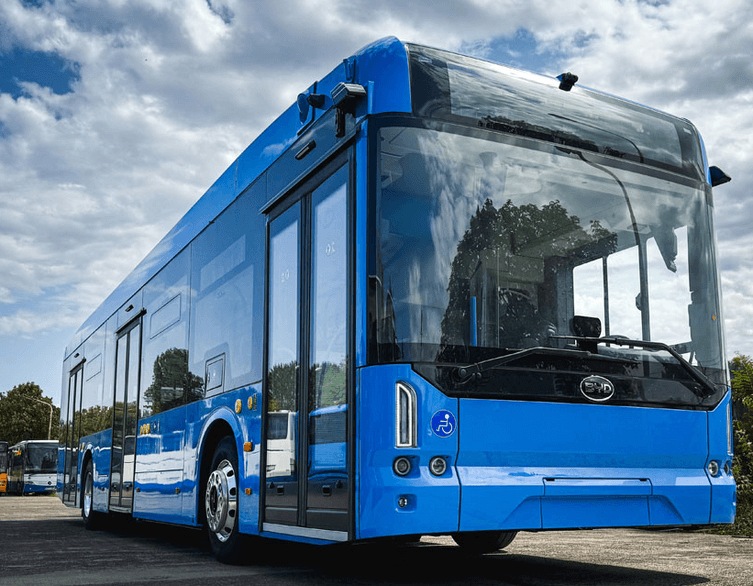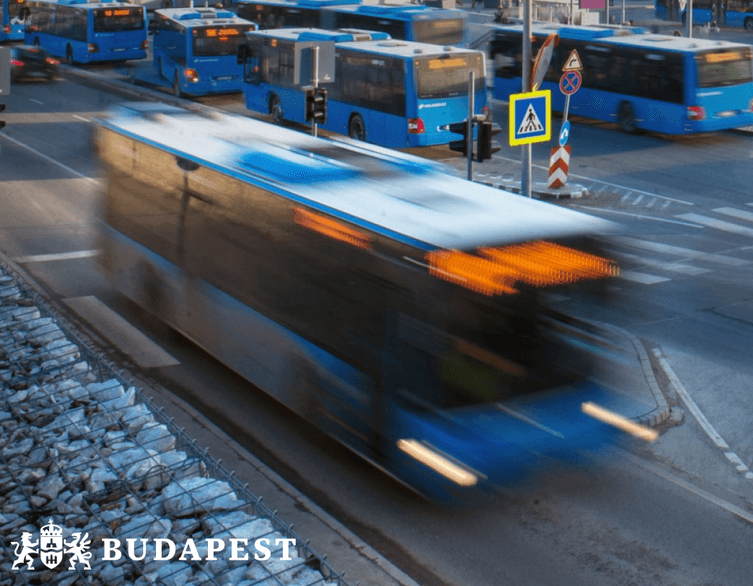Budapest Public Transport Safety Update: Fleet Inspection Results Show Secure Travel for Tourists

If you’re planning to use Budapest’s excellent public transportation system during your visit, you’ll be pleased to know that recent comprehensive safety inspections have confirmed the security and reliability of the city’s bus fleet. Following some fire incidents in August 2025, Budapest’s transport authority BKV conducted an extraordinary fleet-wide inspection that has now concluded with reassuring results for all passengers.
Comprehensive Safety Review Completed
Between August 14 and August 29, 2025, BKV’s technical experts conducted thorough inspections of 855 buses across the entire fleet. This extraordinary review was ordered at the request of Budapest’s mayor following three fire incidents that occurred in quick succession during August. The good news for travelers is that no safety issues were found that could endanger passenger wellbeing.
The inspection process was remarkably thorough, examining engines, electrical systems, oil and transmission lubrication systems, and the functionality of fire extinguishers and automatic fire suppression equipment. Given Budapest’s diverse bus fleet, which includes various types and ages of vehicles, the inspection took into account the unique characteristics of different bus models.
During the review process, maintenance teams performed additional safety measures including dry ice cleaning, specialized oil-neutralizing engine compartment cleaning, and high-pressure washing of bus engine areas. These proactive steps ensure that Budapest’s public transport continues to meet the highest safety standards for residents and visitors alike.
What the Inspection Found
The technical review revealed minor issues typical of an aging fleet, primarily affecting buses older than 10 years. These included oil contamination, fluid leaks, and electrical cable wear – all problems directly related to vehicle age rather than systemic safety concerns. Importantly, none of these issues posed any risk to passenger safety.
The discovered problems aren’t unfamiliar territory for BKV’s experienced maintenance teams, who have been managing similar age-related issues for decades. Every bus in the fleet undergoes strict daily, weekly, and quarterly inspections, plus annual technical examinations. The recent comprehensive review confirmed that while some maintenance challenges exist due to vehicle age, the established safety protocols effectively protect passenger wellbeing.
BKV’s safety record speaks volumes about their maintenance expertise. Despite passengers taking nearly 300 million bus journeys annually, only one or two accidents per year over the past six years have been attributed to sudden technical failures – and none of these involved fires. This impressive safety record demonstrates the effectiveness of Budapest’s public transport maintenance protocols.
Understanding the Fire Incidents
The August 2025 fire incidents involved different bus types from separate depots, indicating no systematic connection between the events. The investigation into these specific incidents continues with external expert involvement, but preliminary findings suggest they were isolated occurrences rather than indicators of broader fleet problems.
One incident involved a Turkish-manufactured Karsan ATAK bus on route 16, which had been in service since November 2015. The second incident involved a 25-year-old Mercedes Citaro O530 bus that had previously served in cities like Frankfurt, Salzburg, Madrid, and Berlin before being deployed in Budapest as temporary replacement service.
Budapest’s buses are equipped with automatic fire suppression systems, and passenger compartments are separated from engine areas, ensuring that even in the unlikely event of technical problems, passengers can safely and quickly exit vehicles. Throughout BKV’s operational history, no passenger has ever been injured in a fire incident caused by technical failure.
Interestingly, fire incidents have actually been decreasing over recent years thanks to enhanced maintenance protocols adapted to the fleet’s aging profile. This downward trend demonstrates BKV’s proactive approach to safety management and continuous improvement of their maintenance procedures.
Fleet Modernization in Progress
The key to long-term reliability lies in fleet renewal, and Budapest has been actively pursuing this goal. The current fleet averages 12.8 years old, compared to the previous average of 14-15 years. However, the optimal maximum lifespan for buses is 8-10 years, meaning that approximately 420 vehicles – half the current fleet – are ready for replacement.
More than 200 buses are over 20 years old, reflecting decades of deferred investment in fleet renewal. This aging infrastructure presents ongoing maintenance challenges, but BKV’s enhanced inspection protocols ensure continued safe operation while replacement programs proceed.
Budapest has made significant progress in recent years, with 360 new buses, 50 new trolleybuses, and 26 new CAF trams entering service. The old high-floor buses have been completely phased out, replaced with modern low-floor, accessible vehicles that better serve all passengers, including those with mobility challenges.
New Buses Arriving Soon
The modernization process continues with impressive momentum. Over 300 new electric and diesel buses will arrive in Budapest over the next two years, with the first 25 new diesel articulated buses already entering service in recent weeks. These modern Mercedes Citaro vehicles feature climate control, advanced passenger information systems, camera systems, and radar safety systems protecting pedestrians and cyclists.
Best deals of Budapest
The newest development came in late August 2025 with the arrival of the first four electric buses from the groundbreaking new electric fleet. This represents a uniquely ambitious program in Hungary, with 70 electric buses – 50 solo and 20 articulated vehicles – set to enter service in Budapest by 2027.
These zero-emission vehicles will provide even more comfortable and environmentally friendly travel options while playing a crucial role in ensuring equal opportunities, achieving climate goals, and improving energy efficiency. The first electric buses could enter service as early as late 2025, but will definitely be operational by the first half of 2026, primarily serving routes crossing Budapest’s inner areas and central Buda districts.
ArrivaBus specialists are now beginning the technical preparation of these vehicles, fine-tuning all systems to ensure everything is ready for service launch. These brand-new, quieter, and zero-emission vehicles represent another significant step toward a more livable and sustainable Budapest.
Environmental Benefits
By autumn 2025, 65 new 10-meter “MaxiMidi” buses will arrive, enabling the retirement of numerous older vehicles. Additional procurement plans include leasing agreements for 80 new articulated diesel buses and 85 new solo gas buses, with BKV preparing to lease another 80-100 buses and holding purchase contracts for an additional 76 new vehicles.
The new buses represent a significant environmental improvement as well. By 2027, nearly 90% of Budapest’s bus fleet will consist of Euro 5 or more modern emission-standard vehicles, reducing local air pollution by approximately 8,000 tons annually – a meaningful contribution to cleaner air for residents and visitors.
The introduction of electric buses adds another layer of environmental benefit, with zero local emissions and significantly reduced noise pollution, particularly beneficial in Budapest’s historic districts where preserving the urban environment is crucial.
What This Means for Tourists
For visitors to Budapest, these developments translate into increasingly comfortable, safe, and reliable public transportation. The city’s comprehensive inspection regime ensures that all buses in service meet strict safety standards, while the ongoing fleet renewal program means you’re increasingly likely to travel on modern, air-conditioned vehicles equipped with the latest safety and comfort features.
The upcoming electric buses will offer an exceptionally quiet and smooth travel experience, perfect for tourists who want to explore the city without contributing to noise or air pollution. These vehicles will primarily serve central routes, making them ideal for visitors traveling between major attractions and accommodations.
Budapest’s public transport system remains one of Europe’s most extensive and affordable, with the added assurance of rigorous safety oversight. The BudapestGO mobile application provides real-time journey planning and ticket purchasing capabilities, making navigation even easier for international visitors.
Government Relations and Funding Challenges
The fleet renewal process faces some bureaucratic challenges, with Budapest’s leadership noting that while plans and intentions are clear, adequate funding remains the primary obstacle. Since 2021, the city has developed banking arrangements that would enable extensive bus replacement, but these require government approval that has not yet been granted.
European funding sources remain available for vehicle procurement, but these also require government authorization – something that Budapest’s mayor describes as needing just “one signature” from national authorities. These funding discussions are part of ongoing negotiations between Budapest and the Hungarian government regarding infrastructure development.
Despite these challenges, Budapest continues to prioritize passenger safety and fleet modernization within available resources, demonstrating the city’s commitment to maintaining high-quality public transportation for residents and visitors alike.
Looking Forward
While the recent fire incidents prompted justifiable safety reviews, they also highlighted Budapest’s proactive approach to passenger safety and continuous improvement. The comprehensive fleet inspection demonstrates the city’s commitment to maintaining the highest safety standards while working toward complete fleet modernization.
For tourists planning their Budapest adventures, the message is clear: the city’s public transportation system is safe, reliable, and continuously improving. Whether you’re traveling to thermal baths, exploring historic Castle District, or discovering the vibrant Pest side neighborhoods, Budapest’s buses provide secure, comfortable transportation backed by rigorous safety protocols and ongoing modernization efforts.
The inspection results confirm what regular users already know – Budapest’s public transport system prioritizes passenger safety above all else, maintaining strict standards while pursuing ambitious modernization goals that will benefit residents and visitors for years to come. With new electric buses joining the fleet soon, your Budapest travel experience will become even more comfortable and environmentally responsible.
Related news













